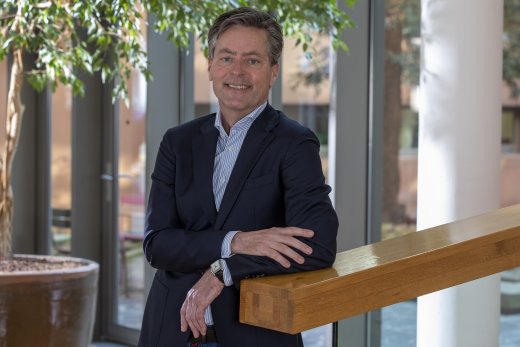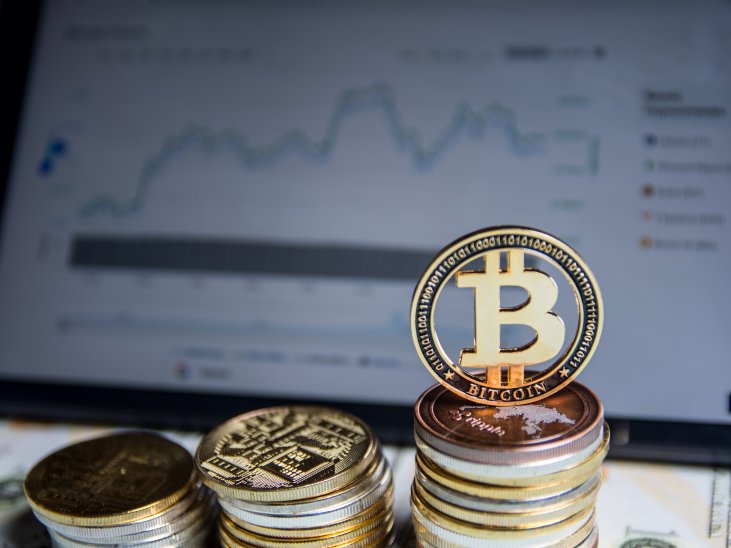5 Questions about Digital Sustainability to… Johan van den Neste, Univé

Johan van den Neste is CEO of Univé Schade N.V., a cooperative insurance company that was founded by Geert Reinders and some other Dutch farmers over 200 years ago and now has 1.6 million policyholders. Here, he explains how digital sustainability fits into Univé’s long-term vision and the importance of retaining a personal touch, even in today’s data-driven era.
“We need to learn to think in terms of opportunities rather than risks”
What does ‘digital sustainability’ mean to you?
I think ‘digital sustainability’ is a very useful term to sum up what has been on my mind for several years. Around a decade ago, years before I arrived at Univé, it became increasingly apparent to me that the way we were treating data was potentially dangerous – so dangerous that I’d tell people ‘data is the new smoking’. That often fell on deaf ears back then, but I’m pleased to see that the discussion is now gathering pace. Even so, when data is mentioned in the context of the three P’s of sustainability (People, Planet and Profit), the knee-jerk reaction is usually to zoom in on the ‘People’ aspect in terms of privacy and protection. This is all very important, of course, but data is also relevant from the perspective of the other two P’s: Planet and Profit. Think of all the carbon emissions caused by mining bitcoins, for example, not to mention the effect on the landscape when massive new data storage centres need to be built. And even though – as a mutual insurance company – we redistribute all our profit to our members, data will unquestionably play a key role in our future business model so that we can safeguard our company’s long-term future and ensure that our grandchildren and great-grandchildren will still be able to obtain insurance. The concept of ‘digital sustainability’ helps us to think about data more broadly across all three of these pillars.
Why is digital sustainability so important to you as an organisation?
A strong sense of corporate social responsibility is in our nature as a mutual insurance company, and we believe that this approach will only become even more popular over the coming decades in line with the rising importance placed on sustainability, especially by the younger generations. Consumers are increasingly choosing ‘meaningful’ companies that give something back to society rather than just to shareholders. When I joined Univé as CEO of Univé Schade in January 2021 after having been at another insurance company for more than 18 years, I felt like a kid in a candy store! After all, Univé is a very long-standing company with a strong brand, we’re financially robust which means we can invest in our future, and the focus on doing our bit for society is a really good fit with my own personal motivation. Plus we don’t have the sustained pressure from shareholders to achieve double-digit growth and cut costs, but instead we really are customer-centric and focused on sustainability. Against this backdrop, it’s only logical that digital sustainability is important to us too. Within Univé, we often say that ‘Software eats the world’. Focusing on digital sustainability can help us in our efforts to prevent that from happening. We want to retain our personal touch, even in today’s digital era.
How are you making your organisation more digitally sustainable?
Earlier this year, supported by a number of external experts, we conducted research among our management team to try to define what ‘doing business meaningfully’ actually entails. We asked for everyone’s thoughts on how could make the concept of sustainability tangible in their everyday work. This resulted in the strategic decision to primarily concentrate on SDG3: Good Health and Well-being, and secondarily on SDG13: Climate Action. In the digital domain, this is now helping us to sharpen our focus on the fact that our members’ data belongs to them, not us, and that we should only use it to make things better for them. Additionally, we are focusing even more firmly on protecting them against data-related risks. One example of this is our initiative to insure our members against cybercrime, which is a relatively new but ever-increasing digital risk. If any of our 1.6 million members come into contact with any form of cybercrime, they can call our 24/7 Cyber Helpdesk for free advice and – if necessary – technical support, which gives them tremendous peace of mind. And from a financial perspective, they can also submit a claim for a certain amount of money to replace their IT equipment.
As far as I know, we’re unique in the world in rolling this out to all our existing policyholders free-of-charge. But above all, we’re running an ongoing awareness campaign to educate people about these modern-day risks. We will soon be extending this service to cover cybercrime through channels such as WhatsApp, and we’re also developing a CyberFit programme to raise awareness among our business customers. In another example, because inclusiveness is a very important aspect for us, we are exploring how we can broaden our offering to include people who are currently being excluded from taking out insurance – perhaps because of their age, previous payment problems, bankruptcy, fraud and so on – due to today’s data-driven systems. Is it constructive, not to mention fair, to punish people for so long? Plus in recent years, there have been some high-profile cases of how algorithms can have inherent biases. This is definitely not ‘sustainable’ from a societal viewpoint. On top of that, excluding whole groups of the population purely because the algorithm tells you to do so could be bad for your business model. Therefore, we are now asking ourselves how we can make optimal use of all the available data to ensure that everyone in the Netherlands can have fair access to insurance, albeit based on slightly different payment terms or conditions if necessary.
Which indicators have you developed to monitor your digital sustainability?
Needless to say, we fully comply with the GDPR to protect our members’ privacy and ensure their data is only used with their consent, including honouring our members’ requests to access to their data or to be forgotten. We also have an Ethical Code of Conduct which covers various aspects related to data, including what data may and may not be used for. A core team called the Ethical Committee check and monitor that everything we do is in line with that code. But the Ethical Code of Conduct is focused on the ‘People’ aspect of the three P’s, so the next step is to look at how our approach to data impacts the planet. What is the environmental footprint of sending an insurance policy to a customer in digital format, including the use of servers and so on? And from the perspective of ‘Profit’, we have developed a Data Maturity Model to track our progress from being a data-using company to being an ethical and sustainable data-driven company. On top of this, we have set up another core team called the Data Value Board. Over the coming year, we will be asking our data departments for their input on how they contribute to our progress towards the SDGs. The Data Value Board will analyse the findings and share them with the board to identify areas for further improvement. The aim is to develop a digital sustainability scoreboard based on quantifiable KPIs. One example in line with making ourselves more inclusive could be a target that helps us to reduce the percentage of applicants we refuse.
What has been the biggest challenge for your organisation when adopting digital sustainability policies?
I think the biggest challenge for us as a financial services provider is to open our minds and use our imagination when thinking about how to use data and technology effectively to solve current and future problems. It comes down to being clear on which problem you want to solve and how data will actually solve it, rather than just using data for the sake of it. So we’ve now asked ourselves which processes we should offer on a self-service basis to really add value for our members. But in order to retain our personal touch, we’re also keen to ensure that customers are automatically offered personal support during those online processes if we notice that they need it. Additionally, it’s in our nature as an insurer to be risk-averse, but we need to learn to think in terms of opportunities rather than risks.
The book ‘Everything Transaction’ inspired me to dive deeper into the implications of the digital economy and how we can move from the traditional world of insurance into the new world of Open Insurance. This has given us some strategic pointers for our future direction and also set us thinking about how we can play a new role in ecosystems. For instance, we have our roots in farming and we’re still big supporters of the Dutch agricultural sector today. Many farmers have asbestos in their roofs, so in conjunction with Rabobank and GreenChoice we developed a proposition to help them not only replace their roofs, but also to make them more sustainable by installing solar panels. This was done free of charge in exchange for us having rights to the electricity supply for the next 20 years. We’re now looking at how we can feed that energy back into our membership base, such as to power their electric cars. I think this is a great example of how we’ve played a role in a future-oriented business model based on ecosystem thinking. And now we’re not only a financial services provider, but also the Netherlands’ eighth biggest supplier of solar energy – who would’ve thought that?




